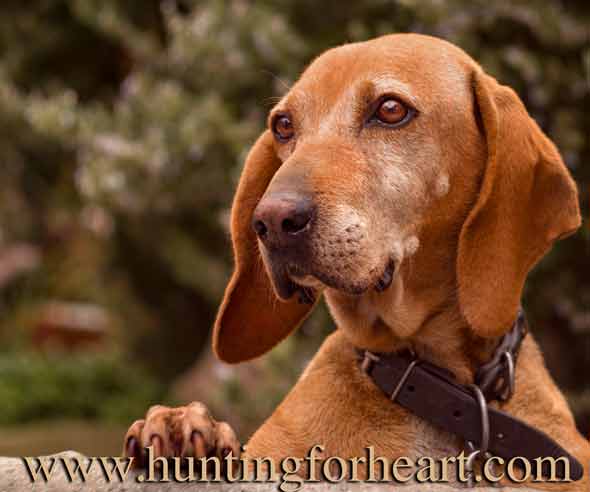Abused Dog Behavior
by Ellen Landauer
Abused dog behavior - what are the signs? How do you help a stressed pup heal?

Years ago, I was a volunteer at an animal shelter. Three afternoons a week, I walked and groomed dogs, comforted kittens, learned from shelter staff and talked with visitors.
It became apparent that virtually every canine surrendered to the shelter had been misunderstood, or worse, mistreated. Occasionally, shelter staff would arrive in the morning to find a dog or puppy tied to the outside of the fence - abandoned. How could they NOT have been mis-treated?
These were not confident, composed, emotionally whole animals. Many of them had barriers to connecting with people. Commonly, they also had (mostly minor) health problems. Skin issues such as 'hot spots' (sore, weeping lesions with loss of fur), eye problems, parasite infestations and so on were often seen.
Abused dog behavior takes many forms: fearfulness, defensive growling, fear-biting, depressed demeanor, hyperactivity, separation anxiety, destructive behavior, emotional shutdown (lack of open responsiveness to people), aggression toward their own species, chronic mindless barking and more.
Another less-recognized symptom of abuse is hyperfriendliness. It generally is not recognized for what it is - fear and nervousness. Commonly, hyperfriendliness is thought to be good - as when people characterize such a dog as a 'wiggle-butt.'
NOTE: A hyperfriendly dog is more likely to bite inappropriately than a calmly focused one.
Abused Dog Behavior:
Beginning the Recovery Process
If you are fostering or caring for a canine pet with any of the above issues, how you ARE BEING with them - your emotional state - can provide an environment in which healing is possible. You ARE their environment! You as caretaker are the vibrational atmosphere in which they are enveloped.
Abused dog behavior takes time and patience to heal.
Rather than trying to move too fast to get to 'normal, happy puppy' mode, it is a good idea to give them emotional space. You may feel so touched by the fact that a pup has suffered mishandling that you just want to hug, soothe and pet your new friend. This will just put more pressure on them - like an overly doting mother puts on a child. Some calming touch, a little massage - is fine and good. Just don't overdo...
A calm, caring AND somewhat neutral vibe on your part takes PRESSURE off your companion. Virtually any dog that is a rescue already has accumulated stress, so your first job is to just provide an environment that is relaxed and safe.
Give them the space to initiate most contact - don't IMPOSE it on them! Long walks in natural surroundings and just hanging out together in a fenced yard (or with pup on a long line if you don't have a fenced yard) are a good start.
The temptation to do too much, to protectively hover over them, talk too much, or engage in lots of games and training is almost irresistable. This is not ideal for promoting healing on a deeper level.
The more composure you have, the more patience to wait calmly for the pup to INITIATE social interaction, the better. If they are really shut down, having them hungry and a food pouch on your hip may be needed to smooth the way for them to make contact.
My mentor, Kevin Behan who developed Natural Dog Training put it this way, 'When a customer would drop off a dog for rehabilitation, at first I wouldn't do any training. I was just the nice guy at the other end of the leash. I didn't correct them for anything - just took them for long walks in the woods. If they pulled on the lead or jumped on me, etc, I would just relax. As they began to acclimate with me, I would start with some food - they would get their meals from my hand. That begins the opening process.'
Abused Dog Behavior: Some Helpful Hints
'Guilt has no home here.' If you have guilt when faced with distressed behavior, that alone will put a big roadblock in the way of achieving healing.
For example, a rescue with 'housebreaking' issues or one who is destructive in the home will need to be either in a crate or a safe, enclosed area outdoors when not engaged with you. For everyone's safety and sanity this needs to be.
If you are riddled with remorse when the pup whines or rages in a crate, your vibe will make it harder for them to settle down and will also make the problem worse. You need to have the moral certainty that you are doing the right thing.
To begin healing abused dog behavior, the first priority is for you to relax, keep them safe and spend time walking or hanging out together outdoors. There will be time enough for training and more activities once your new friend is feeling more confident.
BUY 'Hunting for Heart' and
Rediscover Your Primordial Bond With Dogs
BUY the
Book
HEALTH INFO
FOR YOU
My other website:
Peak health helps you have more energy to enjoy your dog!
